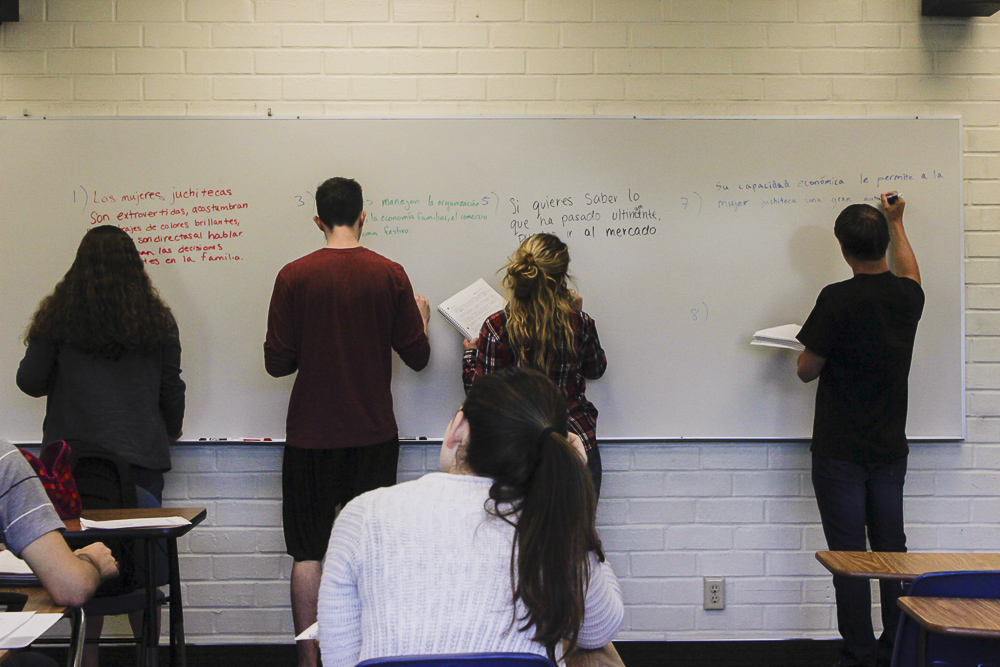Though the number of Hispanic families in the United States who have decided to speak only English at home rather than Spanish has increased, the Biola modern languages department continues to grow and increase its number of Spanish majors and minors.
considering switching or double majoring
The surveys showed that Latinos between the ages of 18 and 33 who only speak English at home rose from 59 percent in 2000 to 70 percent in 2014, according to surveys conducted by the Pew Research Center. However, this has not prevented the Spanish department from proposing changes to grow.
Students are less likely to enter Biola with a Spanish major, but according to surveys conducted in Spanish classes during interterm and the spring 2016 semester, about one-third of the students would have considered switching or double majoring if they were still freshmen. After considering these numbers, the modern languages department aims to reconstruct the major so it will be easier for students to earn a double major alongside another academic field of their choice.
“The proposal is going to be based on a national trend in languages that people want to take languages alongside something else and not necessarily just be a language major,” said Julianne Bryant, interim chair of modern languages. “We don’t get a lot of students who are choosing Biola because they want to be Spanish majors, but we have a lot of people who are currently Spanish majors who either changed from a different major or they double major.”
working together
This will add to changes made in the curriculum three years ago. The previous restructuring included combining four separate classes into one class that students take over two semesters. This program also allows for second-language learners to learn with heritage speakers.
“What we’re doing now with those middle level courses that are composition and conversation is we’re cross-listing them and so the students have to take two, but they don’t necessarily have to take one before the other,” Bryant said. “We’re now offering one section…and students just have to take two semesters of it and we’re also cross-listing it with our heritage learners.”
Heritage learners are students who grew up with parents who learned Spanish as their primary language. The heritage and language learners interact during one class period a week, and also attend another class period separately. Each group contains certain weaknesses, and working together confronts these issues.
providing a resource
Julie Marmion, senior Spanish major, started the Spanish Club last semester to provide a resource for heritage speakers and language learners to continue learning Spanish outside of the classroom.
“Our vision is to create a space where students can speak Spanish outside of the classroom and build community with people who grew up speaking Spanish or people who [want to] learn Spanish,” Marmion said.
The modern languages department plans to write the new curriculum to incorporate room for a double major this summer and propose it to administration this October.







